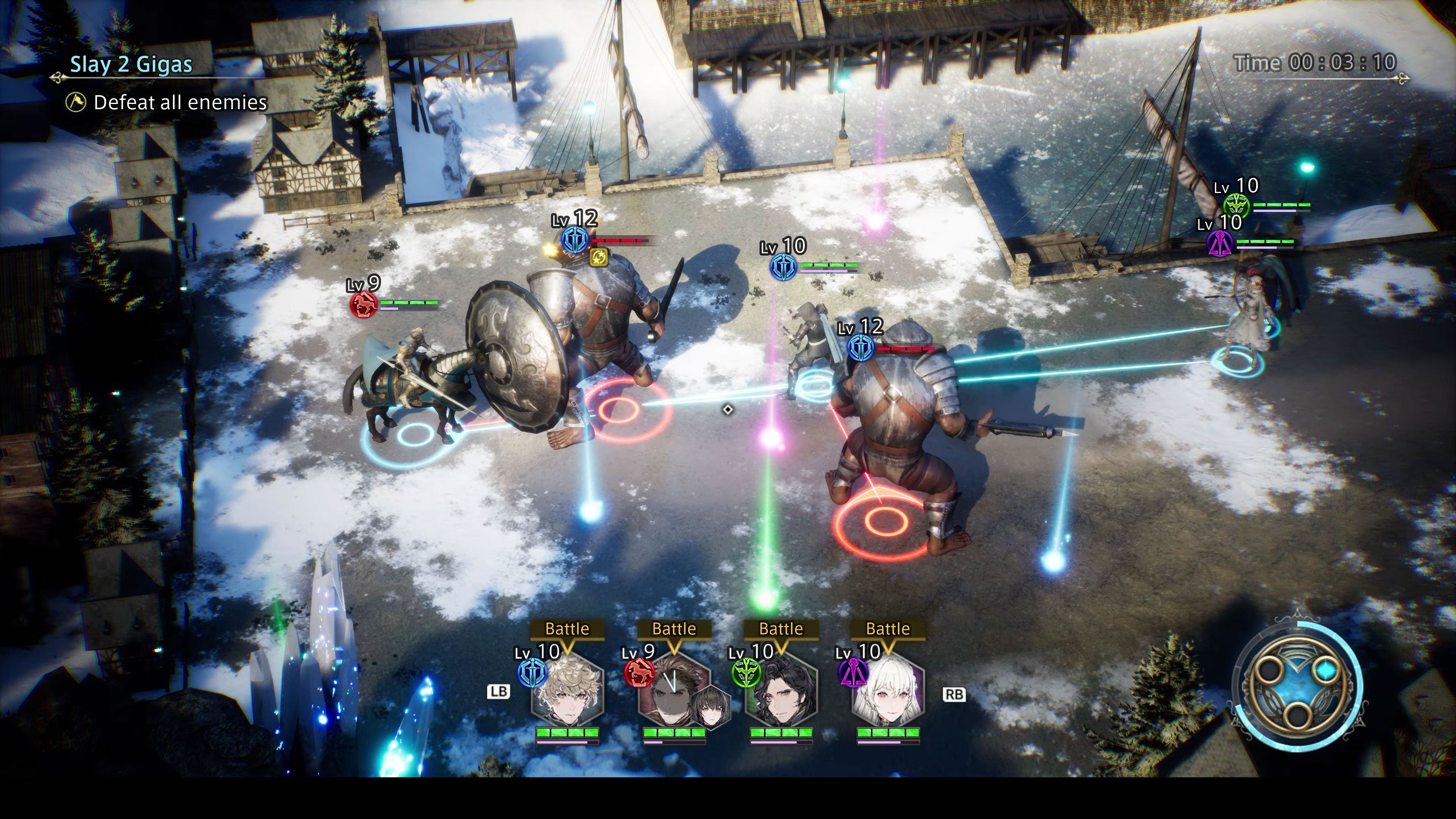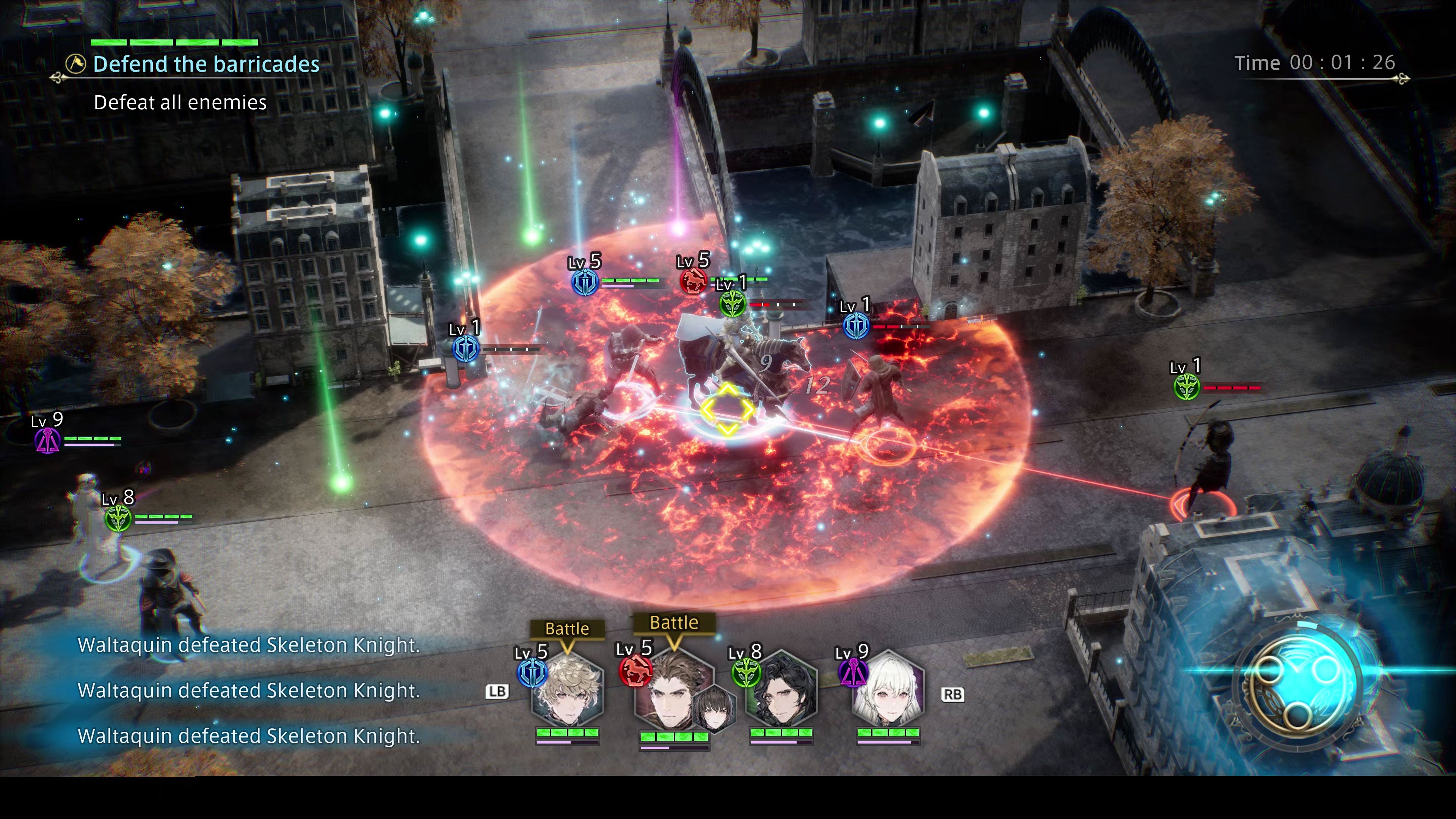The world of new Square Enix strategy RPG The DioField Chronicle is a bit like that, but for English history. You’ve got medieval knights collecting their kit from 17th century plague doctors, before going out to fight stovepipe-hatted cockneys straight out of the Victorian workhouse at the behest of tweed-jacketed gentlemen. Then some skeletons turn up with a couple of trolls in suits of armour. It goes places. The characters have all got hilarious names that seem to be generated from the formula: demon from Charmed + town with a rugby team = totally a real person’s name. Izelair Wigan and Iscarion Colchester are my favourites, but Waltaquin Reddich is also a strong contender – full-on Sleve McDichael stuff like that ‘90s Japanese Baseball game meme.
Jade Empire or Kingdom?
The “epic” story is just as fun though, and is obviously heavily influenced by Game of Thrones in how it tries to stoke political intrigue by following the machinations of rival noble factions, mercantile interests and religious orders. On the island of DioField is the Kingdom of Alletain – England, basically – which has grown prosperous in peace for centuries. However, a war on the continent to the south between the Alliance and Empire over a magical resource called Jade is threatening to engulf the rest of the world. With rich desposits of Jade buried on DioField, tensions are only set to rise further. And in the middle of things is where you find yourself, Andrias Rhondarson – soldier, bodyguard, and one of the four heads of the Blue Foxes group. In the demo I’ve played, it’s not quite successful in its ambition though. Because of the limited amount of on-screen characters, it feels a bit more like you’re watching the opening credits sequence of Game of Thrones rather than the actual show. All of the cliques and cabals are neatly labelled in the decent, comic-style cutscenes, but it’s so much information to sponge up without getting a sense of the actual people involved that it comes off more convoluted than I think it’s supposed to. The DioField Chronicle has grand ambitions in its aesthetic, too, and you know right from the Yoshitaka Amano-esque, Final Fantasy-style logo that you’re in for something artfully directed and highly stylised. Essentially, the action takes place on giant game boards like you’d see at Games Workshop, complete with pipe-cleaner trees, that you can see the sides of when you use special moves or call in giant summons like the classic Bahamut. Square Enix calls it the “Diorama” style, and I really like the arts-and-crafts, tabletop gaming vibe it gives DioField Chronicle – but I feel like the developers at Square Enix and Lancarse could lean into it even more. Every game board I’ve ever made had globs of paint in the grass, nubs of sawdust and sand caked into the surfaces and plucks out of the styrofoam objects. Everything in DioField Chronicle is very smooth, and the characters very action figure-y. If things had a bit more texture – like they’d really been painted – this would be something special to look at. But obviously that’s said without a hint of appreciation for how monstrous a task that would be, and as it stands it’s still good. It’s likely a result of the game being on pretty much every platform going. Having something work on both Xbox Series X, PS5, and Nintendo Switch is going to yield compromises, and I’m sure the Pixar smoothness was one of them.
Knight to King 4
Gameplay-wise, I think strategy games are some of the most difficult to demo. Throw players too much in at the deep end and it’s overwhelming, but baby them too much with staccato tutorials and that glacial pace will leave everyone cold. But after a pedestrian start things pick up when magic and fantasy creatures start to get involved. You control a party of four heroes with different kinds of roles and abilities. Basic fighters that draw aggro, movement focused cavalry who can zone enemies, ranged archers, and healing mages. There’s no isometric grid and everything happens in real time, so you’re constantly waddling people about, firing off special abilities and lining up new routes and combos to hit baddies from behind. It’s good, hectic fun and you quickly come up against big bosses that are genuinely difficult, requiring dodging attacks and synergising party members to avoid getting downed. The “command all” button is a great quality of life feature for dodging attacks and useful since I found the character select to be a bit sticky and squirrely - often flitting to whoever’s closest rather than who I actually wanted. But I also feel like that’s the sort of user-error button mashing that irons itself out when you’re playing more than a demo. This is another place I felt like Square could have played more into the tabletop look though. While the action is intense due to the number of heroes on screen and amount of actions needed at once, the ice-rink smooth environment and relatively slow movement speed compared to the running animation makes it look like every character is doing the running man. I almost feel like it would’ve looked better if they had a model base, because it kind of undermines how kinetic the battles are. Despite these nitpicks, The DioField Chronicle seems like an interesting romp even if some of it’s a bit basic. To get a feel for yourself, the same demo I played - which includes a chunky chapter of the game – is available to download from August 10. The DioField Chronicle is slated to release on September 22 for Xbox One, Xbox Series S/X, PlayStation 4, PlayStation 5, Nintendo Switch and PC via Steam.

